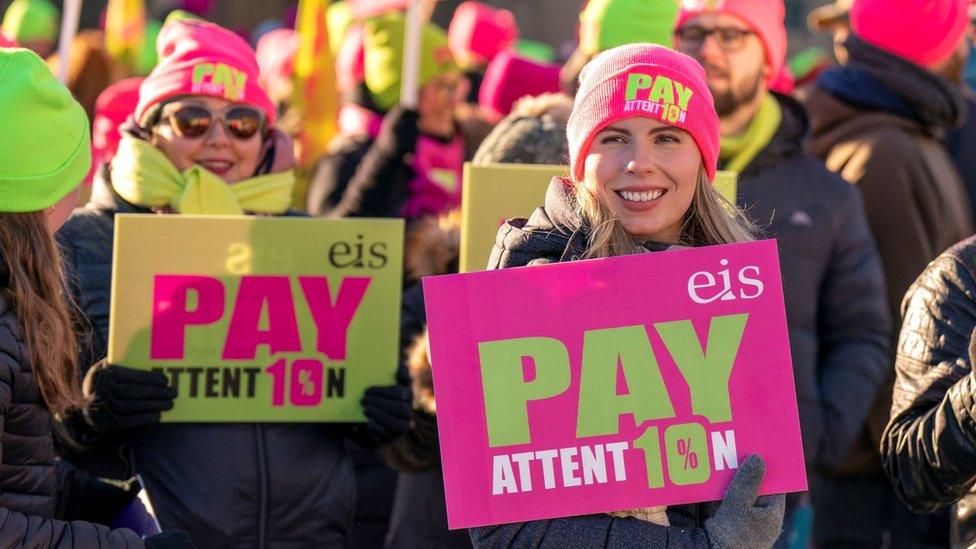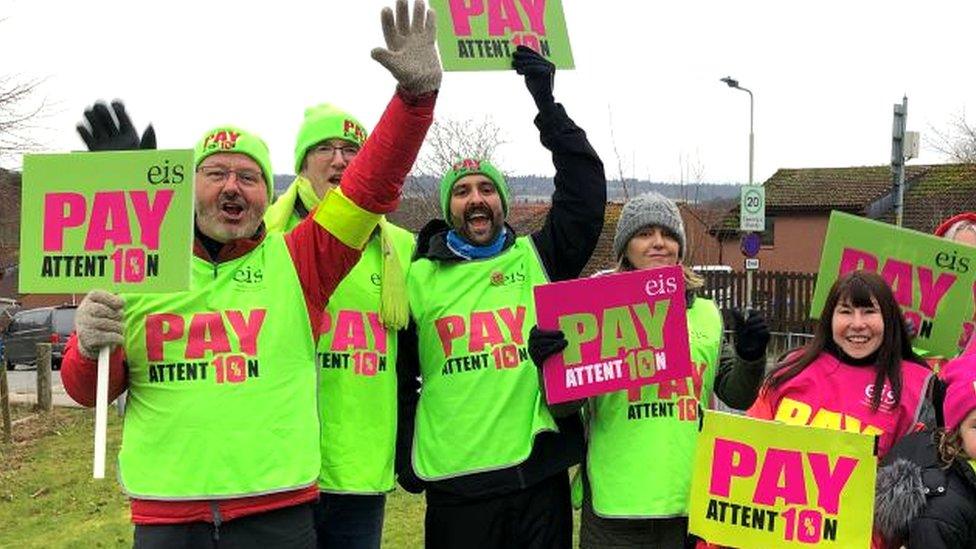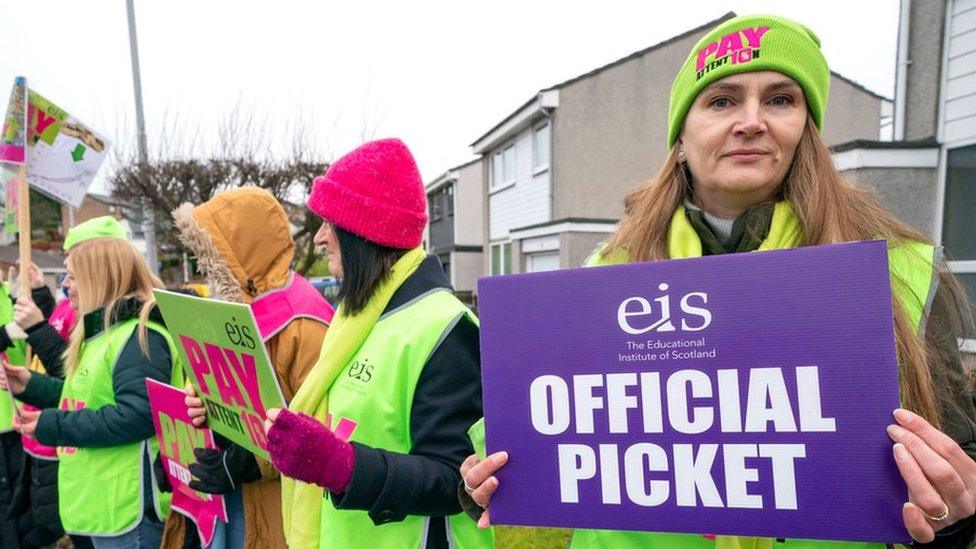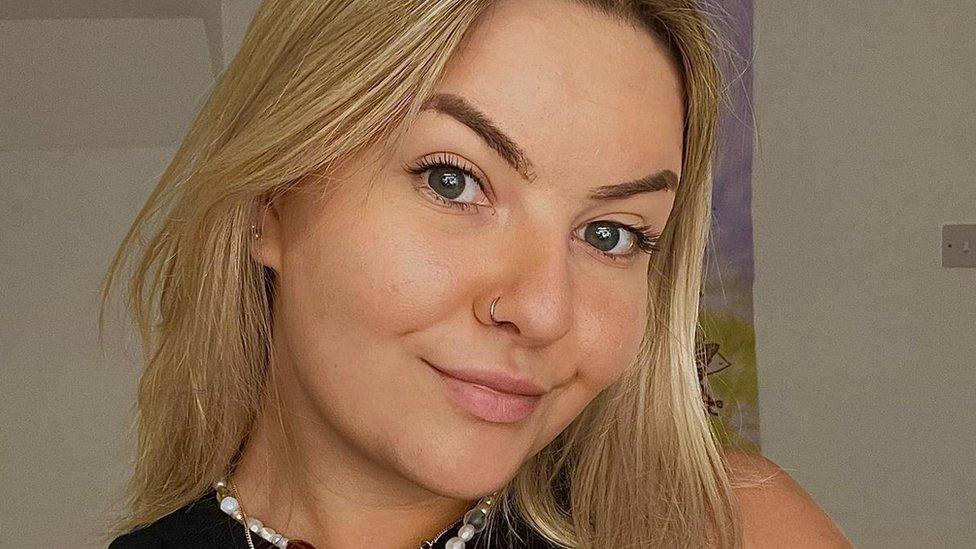Teacher strikes: The young people in Scotland demanding better pay
- Published

Amy has been a teacher for five years and is supporting the strike action
Young teachers in Scotland say they have been left with no choice but to continue going on strike.
The Educational Institute for Scotland (EIS) members have already taken action at schools in the constituencies of senior politicians.
The union says it's been "left with no other option" but to keep striking and wants pay rises above the rate prices are currently rising at.
It's a big factor in why 27-year-old Amy is walking out on Tuesday.
"It's hitting schools directly and it's hitting teachers directly," the teacher tells Newsbeat.
"We're subsidising for children who don't have things, like snacks, fresh fruit, and pens and pencils."
Teachers in Scotland are walking out on Tuesday and Wednesday - while there are also strikes in England and Wales this week.
But Scottish Education Secretary Shirley-Anne Somerville says the continued disruption is "completely unacceptable" and has repeated her call for unions to "resume pay talks urgently".
Amy, and teachers like her, want a pay rise and her union is hoping to target a 10% increase this year.
Unions also want schools to get extra money to ensure pay rises do not come from existing budgets.
However, teachers say it's not just about money.

EIS members have taken action at schools in the constituencies of senior Scottish politicians
Ewan, who is also striking on Tuesday, doesn't have a permanent teaching job despite six years of studying and two degrees.
Instead, the 24-year-old's had to start working a zero hours NHS job at weekends to pay the bills.
"I scrimped and saved quite a bit, but as time has gone on I've realised this isn't financially viable," he says.
"I live at home but there should be no reason that someone who goes to university for six years cannot get a job in their profession."
Ewan feels misled at the lack of work available to supply teachers too.
"You're told right the way through that there will always be jobs, that schools are in desperate need for teachers. You come out and there's nothing," he says.
The most recent pay offer to Scottish teachers was an 11.5% rise over two years - 6% from last April and 5.5% this year.
But Amy says this isn't enough.
"We understand everybody's got a budget they must stick to, but we're making sure that we've got the tools we need in order to teach our children."

Amy spends almost £80 a week on her drive to work
For Amy, the prospect of getting a job closer to where she lives is near impossible.
She says when she came out of her probationary year - a guaranteed year of teaching in a school for all newly qualified teachers in Scotland - she was among 200 people going for two jobs in one council area.
Instead, she's spending close to £80 a week on the 40-minute drive to work.
"Without it, I would have to get two trains to get to work and even that financially isn't worth it," she says.
"It's leaving me with virtually no kind of expendable cash. I feel stressed, sometimes quite upset because I was really looking forward to making my way in the world."
But despite this, she still feels lucky to have secured a permanent job - something Ewan is trying to achieve.
"I was ready to move out and get my own place," he says.
"I actually had a deposit saved up, I'd met with a mortgage advisor who said we just need to wait for a permanent contract to come through and we can move on with it.
"And no permanent contract came through."


Follow Newsbeat on Twitter, external and YouTube, external.
Listen to Newsbeat live at 12:45 and 17:45 weekdays - or listen back here.
Related topics
- Published15 April

- Published28 February 2023

- Published22 February 2023

- Published30 January 2023

- Published14 December 2022

- Published9 November 2022
